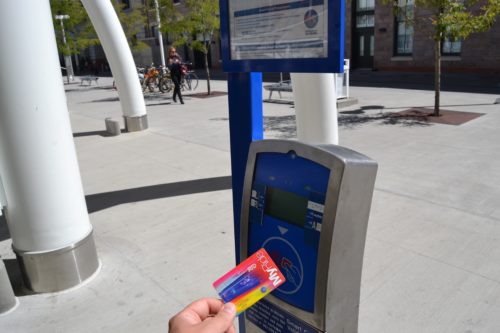RTD Board Rips Xerox for Ongoing Delay of Smart Card Fare System

While cities like Seattle move toward ticketing via mobile phones, Denver’s transit agency is still struggling to implement a re-loadable plastic “smart card” to pay fares. RTD’s quest for this simple fare tech is now eight years long, and the cost has run to at least $21 million.
The contractor, Xerox, is embarrassingly behind schedule in delivering the fare technology. At Tuesday’s RTD board of directors meeting, District G Director Gary Lasater suggested it might be time to go with a different company.
“This is ridiculous,” said Lasater, who designs software for a living. “My customers would be climbing through the roof and down my throat if we weren’t delivering products on a timely basis.” Lasater said RTD should “get some lean, mean, young, up-and-coming companies that will deliver you something better and quicker and cheaper than the garbage Xerox has foisted upon this group.”
Smart cards are not a frill. They streamline the passenger experience and can make bus trips faster and more efficient. A quick tap of the card on the bus (or on the train platform) saves a lot of time compared to digging for dollars and dimes to come up with $2.60. Add that up across thousands of passengers, and you’re talking about big potential improvements for bus speeds and reliability.
RTD has tap-on cards — the EcoPass for businesses and the CollegePass for students — but passengers can’t use them to add or store money, and they aren’t available to the general public. RTD released a small number of “MyRide” cards to some riders in January, but it’s a half-baked pilot.
The most recent snag on taking a smart card system-wide is the inoperable web portal for customers, which is not secure. Xerox has been testing the online environment but it’s still not ready for prime time. The company will inform RTD by December 23 whether it passes the cybersecurity test, Chief Operating Officer Heather Copp told the board. But that won’t be the end of it.
“We will then develop our own testing plan — we haven’t been in that environment in nearly six months — to see if any changes need to be made,” Copp said.
Another problem is that the card-reading machines on train platforms don’t function properly. Sometimes the screens go black, and Copp said other malfunctions point to a “systemic issue.” This is a problem RTD has known about for around two years, she said, but a recent hardware test confirmed it in the eyes of Xerox.
So why doesn’t RTD just cut its losses and start anew?
“It’s much more complicated than that, than just terminating the contract,” Copp said. “We terminate the contract, remember, we have four hundred and some thousand cards out there, if not more, that our riders use every day between the EcoPass and CollegePass program. If we terminate the contract we would have no method for those people to ride our system. And so it’s just not that easy… we also have a lot of money invested in this program.”
In the meantime, RTD is withholding payments from Xerox until the system goes live. That’s not enough for District B Director Barbara Deadwyler, who said she was pessimistic that the system will be done a year from now.
“I understand what you said about it not being such a good idea if we terminated the contract, but how long does RTD continue to support and keep these people on board in order to get this running?” Deadwyler said.
RTD is “in bed with these people for a very long time until we go to a new type of environment, which we can’t afford to do in the near term,” Copp said.


